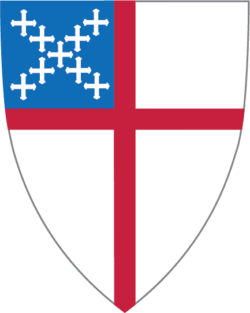
The Episcopal Church Executive Council is accepting nominations for a clergy member to fill an unexpired term that became vacant when the Rev. Lester Mackenzie, who was elected at the 2024 General Convention, resigned to join Presiding Bishop Sean Rowe’s staff.
Nominations to fill the term, which will continue until General Convention 2030, will be accepted through Jan. 28. Submit a nomination.
According to the Executive Council Nominating Advisory Committee, ideal candidates will:
- Be motivated to engage creatively with issues and possess a steadfast commitment to the health and growth of the church as manifested by active involvement in the work of Executive Council.
- Embody Christian principles and view of the council’s work through a lens of service, justice, and compassion.
- Be able to work cohesively with diverse groups and perspectives; exhibit strong listening skills; and show respect for differing opinions and the input of others.
- Be an active participant in a local faith community and possess a deep understanding of Episcopal polity. Experience working with or serving on church governing bodies is an asset.
To fill the vacancy created by Mackenzie’s resignation, bilingual candidates; candidates with extensive experience in multicultural ministry; and candidates who are familiar with ministry in the Western United States are particularly encouraged.
Candidates must be able to attend upcoming Executive Council meetings.
In accordance with the Joint Rules of General Convention, Rule VII.17, nominees chosen by the Executive Council Nominating Advisory Committee will be subject to a background check.
The General Convention of The Episcopal Church created the Executive Council to oversee the execution of programs, policies, the budget of the General Convention, and to serve as the board of directors for the church’s corporate entity, the Domestic and Foreign Missionary Society of The Episcopal Church. It is composed of 20 members elected by General Convention (four bishops, four priests or deacons, and 12 laypersons) and 18 members (one clergy, one lay) elected by province. The presiding bishop and the president of the House of Deputies are the chair and vice chair. The other officers of the Executive Council serve ex-officio with seat and voice but no vote. The canonical duties of Executive Council and its members are outlined in Canon I.4.1.